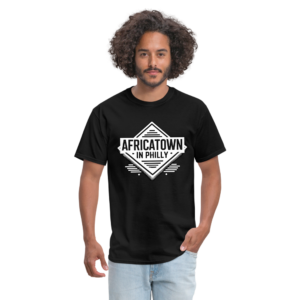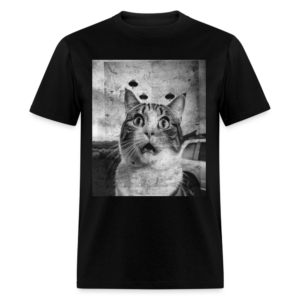Your cart is currently empty!
The Discovery of Tobacco: A Journey Through History and Personal Stories
·
Free shipping over $50 for the month of April using code aprilship
The history of tobacco is a tapestry of cultural, economic, and personal narratives that span centuries and continents. From its discovery by indigenous peoples of the Americas to its global economic significance, tobacco has left an indelible mark on human history. For many, tobacco’s story is deeply personal, tied to family legacies, traditions, and labor—as is the case with my mother, who worked in the tobacco fields as a child in North Carolina.
The Origins of Tobacco
Tobacco’s journey began long before the arrival of Europeans in the Americas. Indigenous peoples in the Americas were the first to cultivate and use tobacco, primarily for ceremonial and medicinal purposes. Archaeological evidence suggests that tobacco has been grown for over 5,000 years. Native American tribes such as the Mayans, Aztecs, and Tainos considered tobacco sacred, using it in rituals to communicate with the spiritual world.
When Christopher Columbus and other European explorers arrived in the New World, they encountered tobacco and quickly recognized its value. Accounts from the late 15th and early 16th centuries describe how indigenous peoples rolled and smoked dried tobacco leaves. These practices intrigued the Europeans, and they began to export tobacco to Europe, where it rapidly gained popularity as a luxury item.
Tobacco’s Economic Boom
By the 17th century, tobacco had become a cornerstone of colonial economies, particularly in regions such as Virginia and North Carolina. Colonists discovered that tobacco could be grown on a large scale and sold for significant profits in European markets. The demand for tobacco in Europe spurred the establishment of vast plantations, which relied heavily on enslaved labor. Tobacco cultivation became synonymous with wealth and power, fueling the growth of the American colonies.
North Carolina emerged as a key player in the tobacco industry, thanks to its fertile soil and favorable climate. By the 19th century, the state had become one of the largest producers of tobacco in the United States. The bright-leaf tobacco variety, developed in North Carolina, revolutionized the industry due to its mild flavor and widespread appeal. Factories sprung up in cities like Durham, processing and packaging tobacco for national and international markets.
Stories from the Fields: My Mother’s Experience
Amid this historical backdrop, there are countless personal stories of individuals who worked in the tobacco fields, including my mother. Growing up in rural North Carolina, she spent her childhood summers laboring in the fields alongside her neighbors. For her, the experience was a mixture of hard work, resilience, and community.
She often recounted waking up before dawn to begin the arduous task of “priming” tobacco leaves—a process that involved harvesting the lower leaves of the plant by hand. The work was physically demanding, requiring long hours under the hot sun. Despite the hardships, she found moments of joy and camaraderie among her family and neighbors. The shared experience of working in the fields created bonds that lasted a lifetime.
One story she told me vividly captures the challenges of this work. She described the heat in the “bacca” barns and how it made the work even more grueling. Yet, despite these challenges, my mother’s stories were often filled with pride. She spoke of the skills she developed and the lessons she learned about perseverance and the value of hard work.
Tobacco’s Global Impact
While tobacco shaped the economies of places like North Carolina, its influence extended far beyond the United States. By the 18th and 19th centuries, tobacco had become a global commodity, with countries such as Spain, Portugal, and England establishing monopolies to control its trade. Tobacco’s popularity spread to Asia, Africa, and the Middle East, where it became integrated into local cultures and traditions.
However, the global expansion of tobacco also brought significant consequences. The industry’s reliance on enslaved and exploited labor left a legacy of inequality and injustice. Moreover, the widespread adoption of smoking and other forms of tobacco consumption led to public health crises that continue to this day. By the 20th century, medical research began to reveal the harmful effects of tobacco use, prompting governments and organizations to regulate its production and consumption.
Modern Reflections on Tobacco
Today, tobacco remains a controversial and complex subject. On one hand, it continues to be an important economic driver in many regions, including parts of North Carolina. On the other hand, public health campaigns have highlighted the risks associated with tobacco use, leading to declining consumption in many parts of the world.
For families like mine, the history of tobacco is deeply personal. My mother’s stories of working in the fields offer a glimpse into a bygone era when tobacco farming was a way of life for many in rural North Carolina. Her experiences reflect the resilience and determination of countless individuals who contributed to an industry that shaped the course of history.
Preserving the Stories
As we reflect on the history of tobacco, it is crucial to preserve the stories of those who lived and worked within its orbit. These narratives provide valuable insights into the human side of history, reminding us of the people behind the statistics and economic reports. My mother’s stories, filled with both hardship and pride, serve as a testament to the enduring spirit of those who toiled in the fields.
In conclusion, the discovery and cultivation of tobacco have had far-reaching implications, shaping economies, cultures, and personal lives across the globe. For my family, tobacco is more than a historical commodity; it is a thread that connects us to our past and to the stories of resilience and community that define who we are.
-

Hungry and Humble Football Player Flapping Arms Touchdown Celebration Unisex Classic T-Shirt #philly
$19.99 Select options This product has multiple variants. The options may be chosen on the product page -

Africatown in Philly Phrase Unisex Classic T-Shirt
$13.99 Select options This product has multiple variants. The options may be chosen on the product page -

Vintage Funny Cat Selfie UFO Alien Invasion Unisex Classic T-Shirt
$13.99 Select options This product has multiple variants. The options may be chosen on the product page -

Vintage Philly Underdogs German Shepherds Unisex Classic T-Shirt
$9.99 Select options This product has multiple variants. The options may be chosen on the product page -

Voxel Art I Luv Tech Unisex Classic T-Shirt
$19.99 Select options This product has multiple variants. The options may be chosen on the product page
————————————————
We use AI GPT Chatbots to help with our content and may get some things wrong.
————————————————-
 Bitcoin, Forex & Stock Futures Now Available – Here’s What You Need to Know!
Bitcoin, Forex & Stock Futures Now Available – Here’s What You Need to Know!
 Why We Love PinkPantheress’s Unique Production Style: The Future of Music Vibes
Why We Love PinkPantheress’s Unique Production Style: The Future of Music Vibes Why Are Oceans Salty But Rivers Fresh? The Secret to Earth’s Survival
Why Are Oceans Salty But Rivers Fresh? The Secret to Earth’s Survival 





